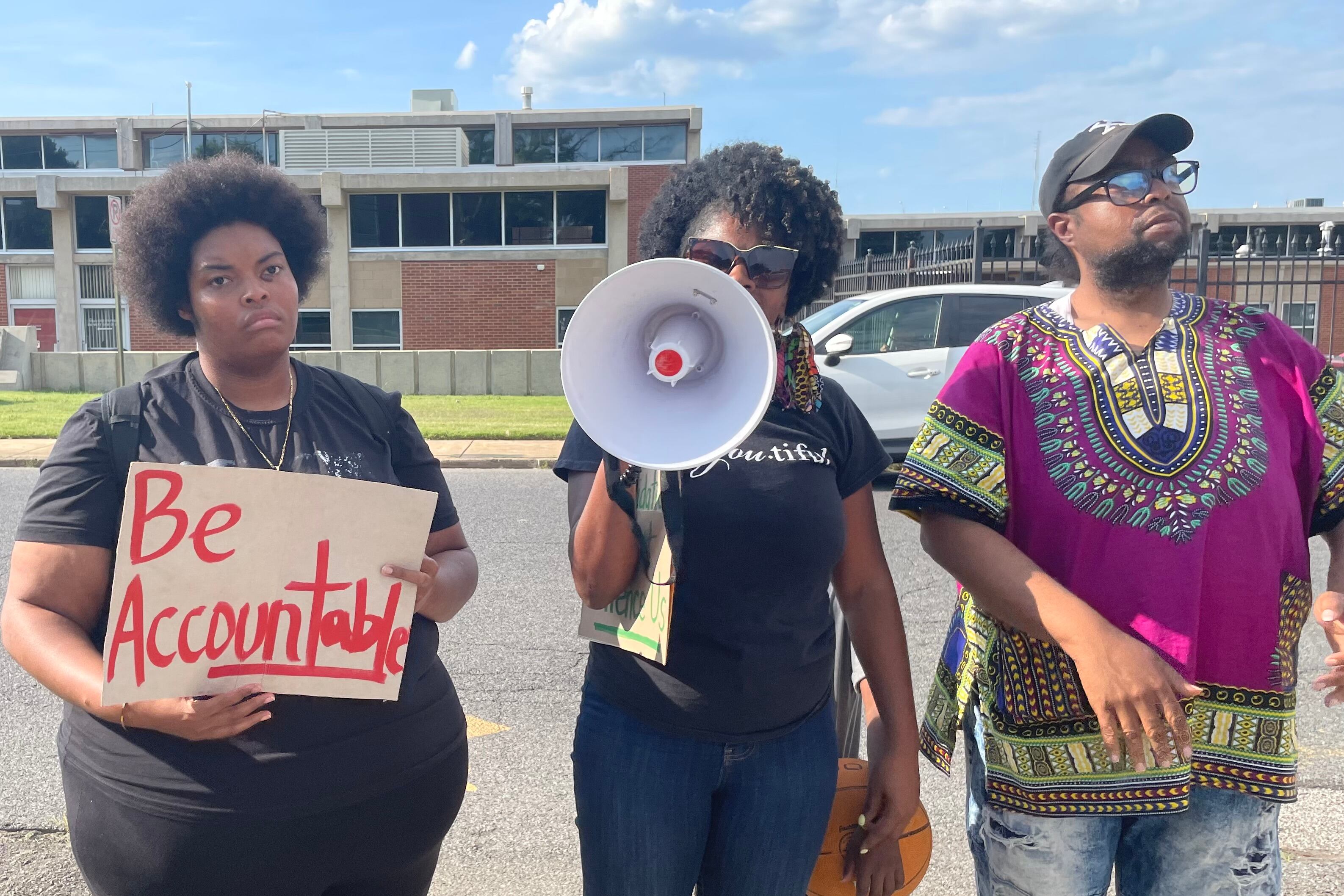Memphis-Shelby County Schools board members, responding to critics of the decision to ban five activists from district property after disruptions at a May 9 board meeting, agreed Tuesday to help create a new policy to maintain order and preserve public safety at meetings.
The board didn’t take a formal vote, but members agreed in principle to set a timeline to have such a policy in place.
“I expect for this so-called ban to be rescinded,” said Gilbert Barnes Carter III, one of several commenters at Tuesday’s meeting who denounced the district’s ban on the activists. “We have no credible evidence that these community leaders, who stand for children, pose any terroristic threat to anyone.
“You cannot be upset when people hold you accountable. You cannot do that and expect to hold a public position,” Carter said.
The five people banned from district property are Tikelia Rucker, a former teacher’s union president; Rachael Spriggs, a former school board candidate; and local community activists Damon Morris, LJ Abraham, and Amber Sherman. The district’s orders threaten them with arrest if they appear at any MSCS schools or properties.
Carolyn Jackson, the chief security officer of MSCS, said district officials are trying to schedule meetings with the activists to resolve the issue. She told the board that the bans were authorized after the May 9 special called meeting, when loud panic alarms were set off shortly after board Chair Althea Greene cut off comments by Spriggs about the superintendent search.
“We were concerned that if nothing was done to stop this disruptive behavior, these meetings would become more disruptive and possibly harmful to those in attendance,” said Jackson, who said the five activists were identified for violating rules and being disruptive.
But when Jackson and interim Superintendent Toni Williams referred board members to a video of the May 9 meeting, board member Frank Johnson questioned the rationale for the bans.
“The way the video shows is that not everyone was participating with the panic alarm,” said Johnson.
“What we’re seeing in these meetings, we’re seeing years of frustration, of entities doing things in this city that are not conducive to what the people want,” Johnson said, adding, “It seems like in this case that an action was done, and now it seems a narrative is being created to justify that action.”
Board member Kevin Woods said that anyone who is banned should receive written notice explaining why and be given a chance to appeal the decision. Board member Amber Huett-Garcia said the board needed to come up with a timeline and a date to have such a policy in place.
Greene, the board chair, said she would meet with Jackson to begin working on the timeline. But she also said that safety would remain a priority.
“We care about your comments, but we also care about the safety of everybody in the room,” she said.
Four of the banned activists — Spriggs, Sherman, Morris and Abraham — gathered with their supporters outside of the administration building to denounce the bans as a violation of their right to free speech, and objected to being labeled security threats.
They directed their ire at board member Keith Williams, who said the board needed to encourage “a proper culture, not one of uncivilized behavior.”
“They want to make us these violent, off-the-chain people,” Spriggs said, “but they know that’s not true.”
Bureau Chief Tonyaa Weathersbee oversees Chalkbeat Tennessee’s education coverage. Reach her at tweathersbee@chalkbeat.org.






